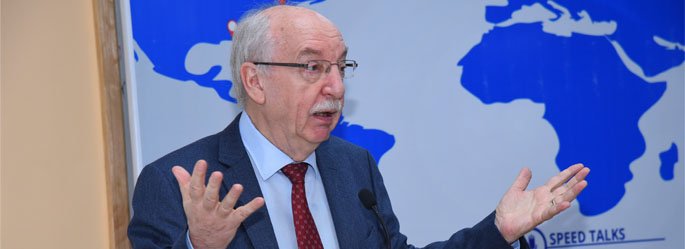OBJECTIVES
THE TAPMI-MPIB-SOTON WINTER SCHOOL’S GOAL
The MPIB conducts a summer institute on bounded rationality every year at Berlin, participated by scholars and students from around the world. Last year, we organized a successful winter school in Manipal, participated by around 30 scholars from India and around the world.
This year, we aim to organize the fourth Winter School on Bounded Rationality, in collaboration with MPIB and IP of the CAS, from January 13-19, 2020. The school aims to provide an interdisciplinary platform for sharing knowledge, discussing the importance and applications of simple solutions to complex problems, and fostering research collaborations between participating scholars and students. Participants will be introduced to research from a diverse set of fields organized under the umbrella of bounded rationality. This winter School will organise many activities—such as seminars, talks, panel discussions, workshops, poster sessions, and social events will take place—and allowing participants to learn and develop new ideas in their respective research fields facilitated by frequent interactions with the teaching faculty members. We encourage participation from research scholars from around the world, specifically in varied areas of judgment and decision-making.
BOUNDED RATIONALITY
What do we mean by bounded rationality? In short, it refers to how the mind reasons under limited time, information, and computational power. However, the logic and probability theory assume perfect knowledge about the relevant features of the world, whereas bounded rationality seeks to specify simple step-by-step rules (heuristics) that function well in an uncertain and complex world. [More about bounded rationality]
Two terms closely related to bounded rationality are: “social rationality” and “ecological rationality”.
SOCIAL RATIONALITY
Human problem-solving may also occur in interaction with others. Decisions may have an interactive nature and what is deemed irrational in isolation might be rational in interaction with others. The study of social rationality examines how judgment and decision processes can adapt to these interconnected social environments. This often involves going out of the lab into the field to study problems that occur whenever multiple people in medicine, law, business, and politics have to make decisions. [More about social rationalty]
ECOLOGICAL RATIONALITY
Another essential concept, “ecological rationality”, refers to the idea that decision mechanisms are adapted to the ecology of the decision maker. The ecology refers to the informational structure within the environment in which the mind makes a decision. There need not be one all-purpose strategy, but rather a set of decision strategies that are specifically adapted to certain types of ecologies. Therefore, the study of ecological rationality explores how these mechanisms exploit the structure of the information in the environment. Through evolution, learning, and culture, a repertoire of specialized cognitive mechanisms (metaphorically known as the “adaptive toolbox”) has emerged. These fast and frugal heuristics generally consist of three building blocks: search rule, stopping rule, and decision making. [More about ecological rationality]



















